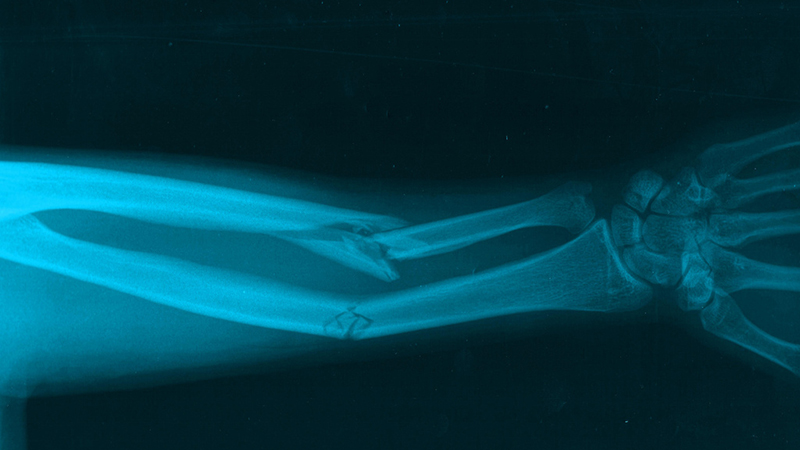Most broken limbs are treated with some form of cast – be it plaster, fibreglass or resin – but will it affect your ability to fly with your airline?
Find out the answers here – and how to ensure you’re not left out of pocket if you’re forced to cancel your trip.

It’s not that simple. Checks are made when fitting casts to make sure they’re not too tight and won’t impede blood circulation to surrounding tissues and extremities beyond the injury. However, despite these checks, tissue swelling can subsequently occur around the site of injury. Because of the increased risk to the vascular system – and possible DVTs – many airlines will prevent passengers flying within 24 – 48hours of a cast being fitted.
For those who need to fly right away, airlines will usually require the cast to be split over its full length. This will help ensure any subsequent swelling won’t affect circulation. Check this is acceptable with the airline, then visit a hospital to have the cast split. However, you’ll need to have it re-sealed when you arrive at your destination and that’s likely to cost you if it’s at your destination rather than returning home.
I have my broken bone in a pneumatic splint – is that okay for flying?
Pneumatic splints are plastic sleeves or socks that can be placed over a broken limb and inflated to form a rigid splint. They are not suitable for air travel, because the pressure within is affected by changes in cabin pressure.
In order to avoid airline problems when boarding with an un-split cast, ask your medical team to provide a letter to confirm the date of your injury and when the cast was fitted. It could save a lot of tears at check-in.
If an injury means you can’t travel, you could lose all your money – that’s flights, hotels, trips etc. Airlines will not be under any obligation to offer a refund. Cancellation cover will typically add a few pounds to your premium, but is likely to cover you for having to abandon a trip due to injury, illness and many other factors. Check the small print and make sure you have this cover in place.
Cancellation cover will only be of any use if you buy it before you’re injured – and research from insurance price comparison site, GoCompare.com, has found that millions of Brit travellers are missing out on this cover because they’re leaving buying their travel insurance the last minute. A staggering 27 per cent of us leave purchasing insurance until the day of departure. The majority of travel insurance policies offer cancellation cover from the date of purchase – not departure. Don’t miss out by leaving it to the last minute to arrange your cover – and remember to read the terms and conditions to make sure cancellation cover is included and that it will cover your outlay if needed.
Travelling in a cramped economy class seat with a broken arm or leg won’t be a great start to your trip, so many will be tempted to spend a few pounds upgrading to an extra-legroom seat – just make sure you pick one you’ll be allowed to inhabit. Passengers with a broken arm or leg won’t be allowed to sit in the roomy emergency exit-row seats – these are reserved for able-bodied travellers who could theoretically help others in the event of an emergency evacuation. Click below to find out more about seats you can book.
Find prices and details for extra-legroom seats

Booked holiday abroad and have my insurance covered but just broken my wrist and in a cast will I have to tell my insurance company and how much will it go up .